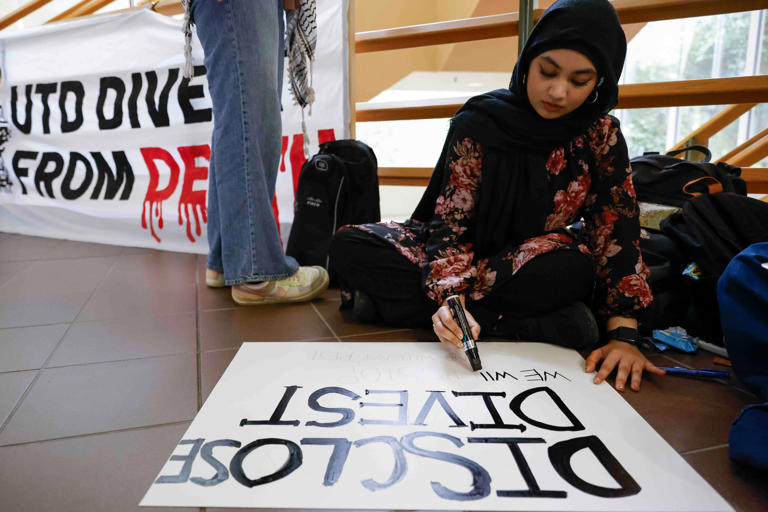The recent student protests at several University of Texas System schools, including campuses in Austin and Dallas, have ignited a contentious debate regarding the financial ties between academic institutions and entities involved in the conflict in Palestine, particularly those supplying arms to Israel. These protests have brought to light the complex issue of university endowments and their investments in defense contractors, raising questions about ethical considerations and institutional accountability.
At the center of the controversy are major defense contracting companies such as Lockheed Martin, Boeing, Northrop Grumman, and Raytheon, which are among the holdings of the University of Texas/Texas A&M Investment Management Company. This entity manages the endowment fund for UT System schools, overseeing investments valued at billions of dollars. While these investments represent only a fraction of the companies’ overall market capitalization, they carry significant symbolic weight, particularly in the context of ongoing geopolitical conflicts.
Student activists argue that by maintaining financial ties with these defense contractors, universities are indirectly supporting the arms trade and contributing to the perpetuation of violence in conflict-affected regions. They contend that institutions of higher education have a moral obligation to divest from companies complicit in human rights violations and military aggression. These sentiments have fueled student-led campaigns, petitions, and protests demanding divestment from defense industries.
The protests, which have garnered widespread attention and media coverage, have underscored the growing concern among students about the ethical implications of university investments. The issue of divestment has sparked impassioned debates on campuses, with students advocating for greater transparency and accountability in investment practices. At the same time, university administrators face mounting pressure to address these concerns and respond to the demands of student activists.
However, the issue of divestment is not without its challenges. University endowments, funded by philanthropic donations and subject to legal constraints, are governed by strict investment policies and fiduciary responsibilities. Divesting from certain companies or industries requires careful consideration of financial risks, regulatory requirements, and ethical considerations. Moreover, state laws, such as Texas’ legislation prohibiting investments in companies that boycott Israel, further complicate the divestment process.
Despite these challenges, student activists remain steadfast in their calls for divestment and ethical investment practices. They argue that universities have a moral obligation to align their investment strategies with their institutional values and principles. The protests at UT System schools reflect a broader trend of student activism on college campuses, where young people are increasingly mobilizing around social justice issues and advocating for meaningful change.
As the debate over divestment continues to unfold, it raises fundamental questions about the role of universities in shaping societal values and promoting ethical stewardship of financial resources. The outcome of these protests and the actions taken by university administrations will have far-reaching implications for the future of socially responsible investing and corporate accountability in higher education.
